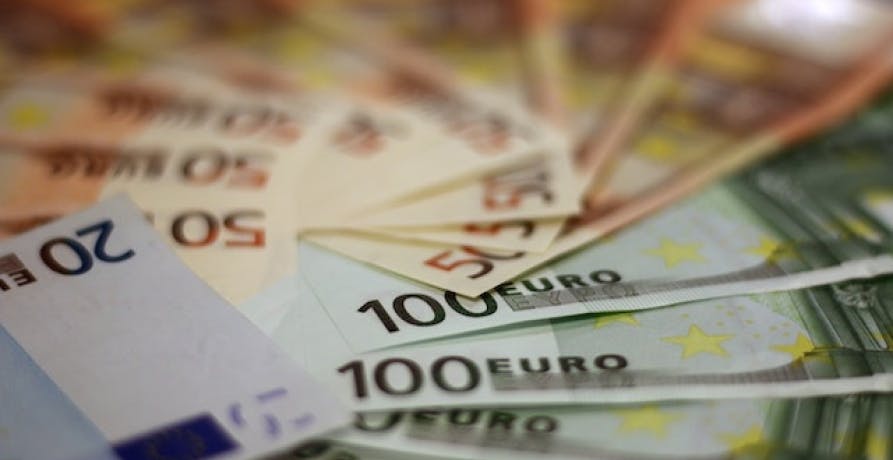ESG / CSR
Industries
What is Economic Sustainability?



Finances are changing alongside the crisis of climate change, as investors are starting to seek investment opportunities with companies that seek sustainability and are dedicated towards helping the environment and fighting against climate change.
Why is it important that people and companies alike recognise the benefits of economic sustainability?
In this article, we'll explain what economic stability is, why it's important, benefits and examples of economic stability, and how your company can get started.
What is the meaning of economic stability?
Economic sustainability is when an activity or practice, financial or not, helps to support long-term financial growth whilst keeping the environment, community, and social factors in mind.
💡 The main goal of economic sustainability is to create a balance between economic growth and the development of positive change for the environment and humanity.
As a result, economic stability works towards the concept to provide all people with the resources necessary to live a satisfying life – such as helping to provide affordable housing, sufficient salaries, good working conditions such as providing paid time off (PTO) and childcare, and regular access to public transportation.
Why is economic sustainability important?
Economic sustainability is important as it is next to impossible for any business to find long-term growth or success if they rely on finite resources for production, marketing, and piquing investor or consumer interest.
Think of it this way: imagine a company that wants to sell lava lamps, but the production of the lamps alone requires the use of non-renewable resources – even to power them within people’s homes with electricity. It will be extremely difficult for the lava lamp company to find success if it’s inevitable that they will come to a point where they can no longer mass-produce as many lava lamps that will be in demand.
Economic sustainability will encourage the use of renewable energy sources, and ultimately create more lucrative opportunities for the business in question that allow for customer loyalty and financial longevity. Also, customers and investors are becoming more interested in shopping or investing in companies that make their dedication to environmental improvement well-known – and companies that demonstrate their ability to adhere to economic sustainability will reveal to potential customers and investors that they are a sustainable option to partake in.
In addition to the benefit of cultivating sustainable longevity for a business, economic sustainability helps the environment by preserving natural resources and making use of the finite ones available – such as solar or wind power.
💡 Basically, economic sustainability is imperative for any business seeking to build long-term customer loyalty and financial success – as ignoring sustainable measures will eventually lead to an obsolete business model, since the current resources used for sales and production will no longer be viable as climate change continues to worsen.


What are the benefits of economic sustainability?
There are a multitude of benefits for those who subscribe to the notion of economic sustainability, especially seeing as economic stability is good for the planet, people, and businesses – such as by working to encourage economic growth and improve the quality of life for your employees.
First of all, economic sustainability is imperative given the current, continued deterioration of the planet – as the continued use of finite resources such as oil, gas, and fossil fuels will only create more greenhouse gas emissions that will further pollute the atmosphere and raise global surface temperatures.
In addition to this, it is important to note that economic sustainability is equally beneficial from a business perspective. Economic sustainability allows businesses to decipher where they can improve their sustainability measures and reduce their carbon footprint in order to adhere to new environmental regulations as well as attract new customers and investors. These new sustainable measures can also ultimately help to reduce business costs – as electricity and other various utility bills will be lowered once more sustainable measures are implemented.
👉 Similar to climate smart farming or healthcare, implementing economic sustainability can allow for a business to afford new technologies that will help them reduce even more emissions – creating even more positive environmental change, consumer curiosity, and investor interest to help grow the business even more.
Businesses that incorporate economic sustainability can also help to influence their surrounding communities. While it is vital that businesses recognise the importance of their commitment to sustainability and reducing emissions, as much of the world’s excessive emissions are caused by commercialised purposes, it is equally important that people strive to make a difference for the planet in their everyday lives, too. In short, if Starbucks makes an effort to be economically sustainable – it may convince Starbucks's customers to do the same.
Economic sustainability can also prove to be beneficial for everyone’s daily lives. A great example are the new electrical shared-biking services available in cities like New York and Paris. The concept has not only exploded in a financial sense, as more and more people living in these cities have opted for these electric bikes or scooters instead of taking the metro – but it allows for people living in cities like these to choose a more sustainable method of getting around town.
These companies that build their missions based on economic sustainability, the creation of a product or service that can continue to be lucrative despite the lack of finite resources – will result in even more reduced emissions, and encourage those who partake in their business to find other ways to be sustainable in their everyday lives.
👉 In short, economic sustainability is beneficial as it serves as a domino effect to increase sustainability worldwide – by boosting business activity and greener practices.


What are some examples of economic sustainability?
Some examples of economic stability include access to reliable transportation, fair salaries, support in health care and child care. In addition to this, the three indicators for economic stability are economic growth, inflation, and unemployment – as these indicators are based on shifting macroeconomic factors.
Economic sustainability influences several major sustainability programs, such the United Nations Sustainable Development Goals and Agenda 2030. These 17 Sustainable Development Goals, or SDGs, provide any company or organization interested in implementing sustainability with ideas for various ways to incorporate sustainability into their business models – such as by ending poverty, mitigating world hunger, improving global education, promoting gender equality, making use of clean energy, and caring for wildlife which is essential to maintain our biodiversity.
Initiatives such as Agenda 2030 by the UNGC help perpetuate the importance of sustainable development by advocating for fair labor laws, gender equality, mitigating waste, and protecting the planet.
Additional well-known examples of economic sustainability include:
- Recycling Programs – These examples of economic stability could refer to cosmetic stores that offer customers to bring their original containers back to the store and refill it with the same product, or the program at Starbucks which allows customers to bring their own cups with them in order to avoid buying single use plastic or cardboard cups to be thrown away later.
- Tech Industry & Trade In Programs – These recycling programs aren’t just for products of daily use, but are also prevalent in big chain stores like BestBuy – who offer customer’s home appliances to be recycled as well. In addition to this, consumers can often trade in their previous iPhone or other, older models of their digital devices to receive a discount on their next purchase.
- Clothing – Fast fashion and sustainable clothing brands alike, such as H&M and Levis respectively, allow consumers to donate their old clothes in order to avoid contributing to landfill. Opening a thrift store can also help to "upcycle" old pieces of clothing.
👉 Implementing economic sustainability into your business model can reap numerous benefits not only for your consumers and employees, but for your own financial gain. Clearly, lots of companies regardless of their sector have found ways to implement economic sustainability. Is there a way that your company can, too?


How can your company achieve economic sustainability?
Economic sustainability isn’t unattainable. In fact, it’s a great first step in the process of transitioning your organization to become a green company.
Here are a few things you can do to start implementing economic sustainability into your business.
Make Use of Clean Energy
One of the easiest ways to start working towards economic sustainability is to transition to the use of clean energy. There are a wide variety of benefits to using clean energy, including reduced carbon emissions and business costs – and ultimately attracting new customers and investors. This can be done by offering products that make use of infinite energy resources such as geothermal power, wind power, solar power, or hydropower.
💡 A great example of this are iPhone chargers that use solar power to charge the smartphone’s battery.
Show Customers Their Sustainability Efforts Are Important
Customers love to feel involved in a company's mission, as it makes them feel important and bonds the customer to the company – establishing greater customer loyalty. For instance, customers will love companies like Lush that offer customers to bring back their original containers and fill it with new products. This not only incentivises the customer to return to the company offering the refill, but raises awareness for consumers to get better at reusing their old containers or recycling them. Another example is depicted in the new climate bill, where Americans will be subject to a tax reduction if they purchase an electric vehicle.
👉 People like to feel important and as if their actions make a difference, even if they do not verbalise it. Therefore, making sure your customers feel a part of your journey to sustainability is imperative in creating a business with effective economic sustainability.


Renovate The Office
Minimalist, sleek, and simple designs aren’t just the go-to style in the magazines – but for the planet as well. Referring to methods like modular construction, which can help to reduce waste and the amount of emissions produced during construction, can also help your company to reduce their carbon footprint in the midst of renovation.
Opting for solar panels, car-sharing opportunities or monthly public transportation passes for employees, recycling and compost bins, energy efficient light bulbs, or smart windows that can mitigate excessive sunlight or frigid temperatures from entering the building – can all make a difference in the carbon footprint of your employees and the office itself.
Economic sustainability starts with investing your time, money, and energy into practices and technologies that may seem extreme at first – but will ultimately yield a more lucrative business that has the potential to maintain its longevity and take part in the fight against climate change.
👉 Looking for more ways to make your office more sustainable? Check our article on 10 ways to make your office sustainable here!
What about Greenly?
If reading this article about economic stability has made you interested in reducing your carbon emissions to further fight against climate change – Greenly can help you!
At Greenly we can help you to assess your company’s carbon footprint, and then give you the tools you need to cut down on emissions. We offer a free demo for you to better understand our platform and all that it has to offer – including assistance with boosting supplier engagement, personalised assistance, and new ways to involve your employees.
Click here to learn more about Greenly and how we can help you reduce your carbon footprint.




